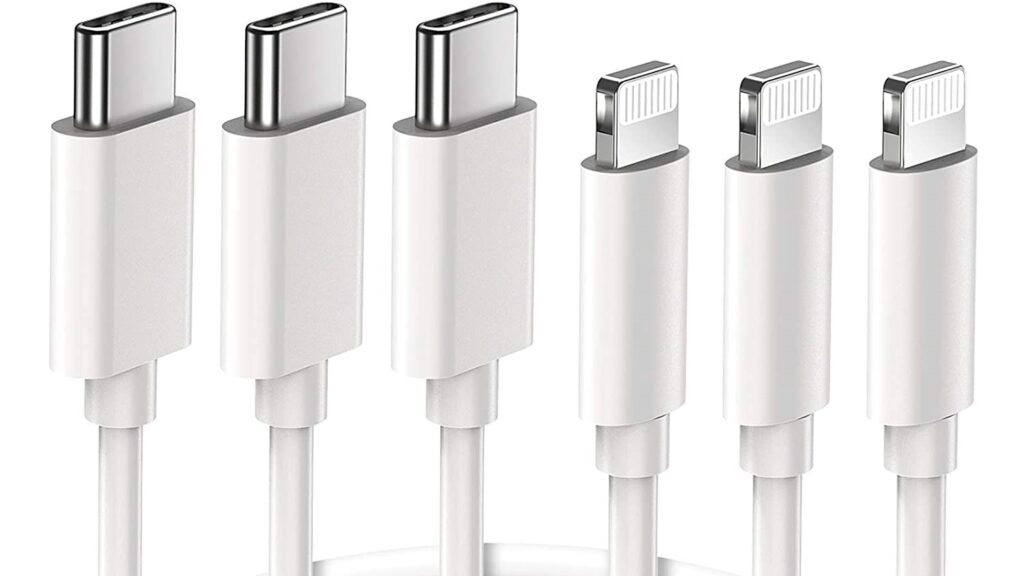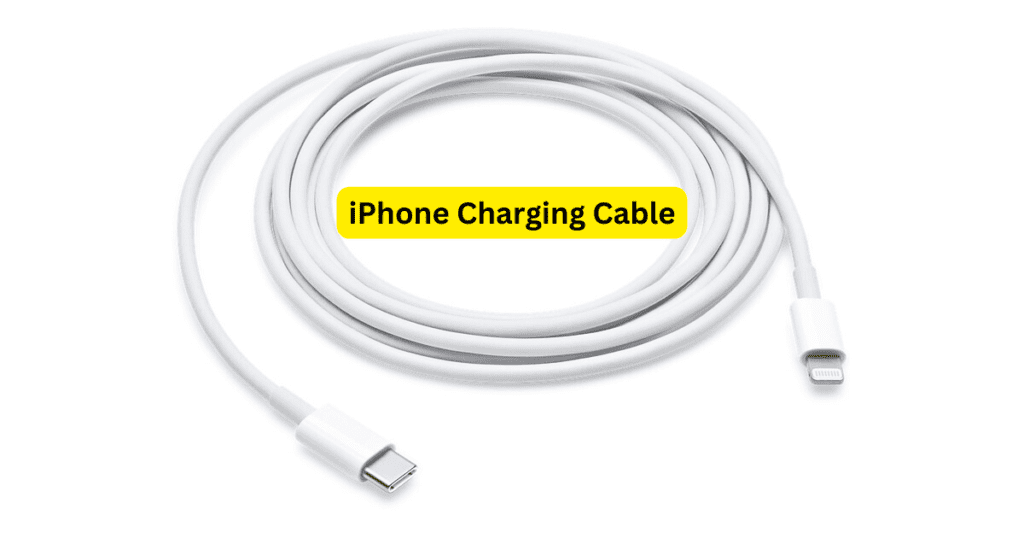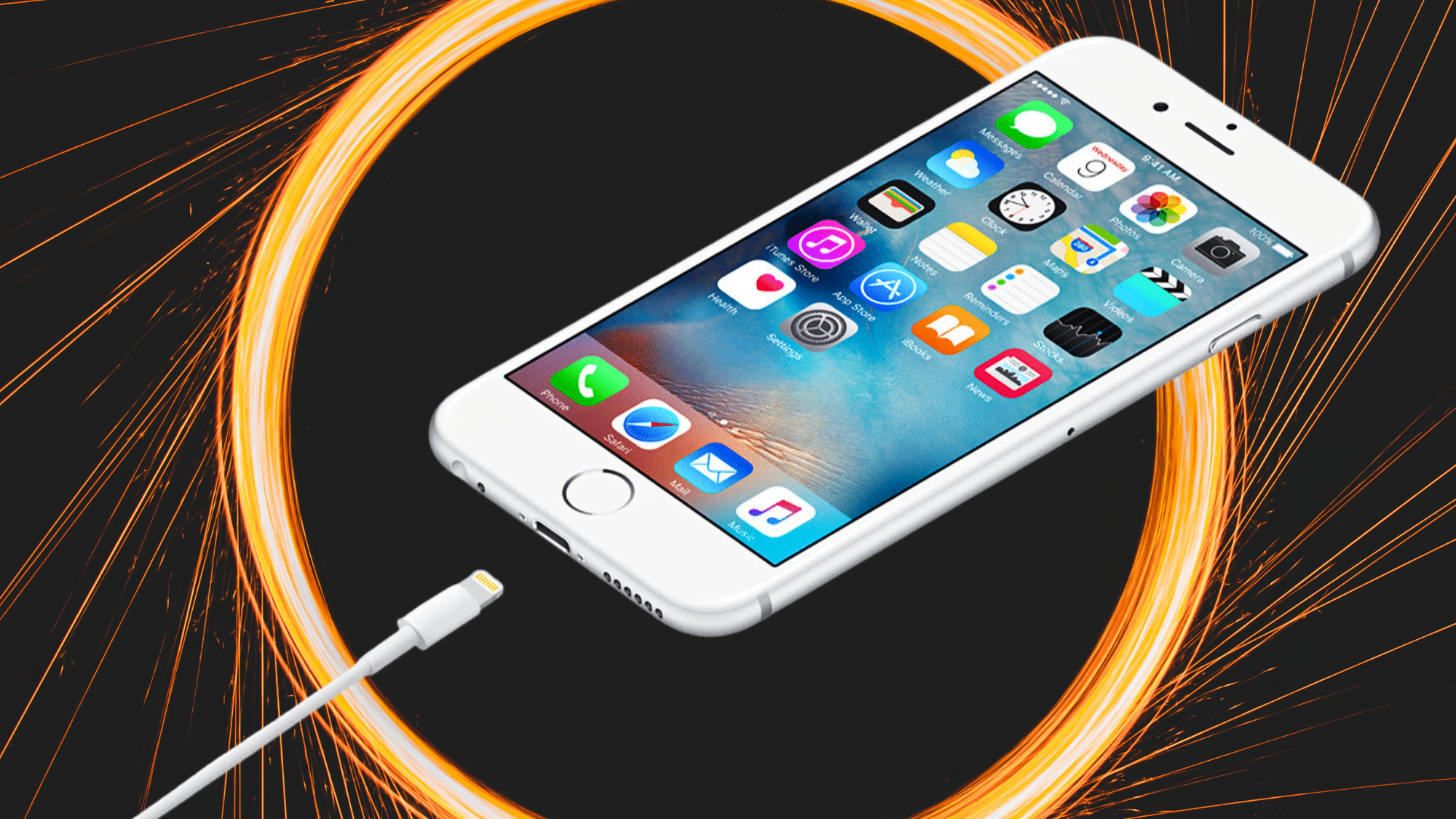iPhone charging cable is commonly known as the Lightning cable. It is a proprietary cable designed by Apple for charging and syncing their devices. while iPhone charging cables offer several advantages such as compatibility and quality, there are also considerations like cost and potential durability issues, especially with non-Apple alternatives. It’s important to choose cables based on individual needs and preferences.
It’s important to use genuine Apple or MFi-certified Lightning cables to ensure compatibility, safety, and optimal performance. Using non-certified cables may lead to issues such as slower charging speeds, incompatibility messages, or potential damage to devices.
iPhone Charging Cable
The iPhone charging cable is commonly known as the Lightning cable. It is a proprietary cable designed by Apple for charging and syncing their devices. Here are some key features of the iPhone charging cable:

Lightning Connector: The cable features a Lightning connector, which is a reversible 8-pin connector. It was introduced by Apple in 2012, replacing the larger 30-pin connector used on previous iPhone models.
Universal Compatibility: Lightning cables are designed to work with a variety of Apple devices, including iPhones (from iPhone 5 and later), iPads, iPods, and some accessories like AirPods.
Charging Functionality: The primary purpose of the Lightning cable is to charge Apple devices. It connects to power sources such as wall adapters, computer USB ports, car chargers, and power banks.
Data Transfer: In addition to charging, the Lightning cable supports data transfer between Apple devices and computers. Users can sync music, videos, photos, and other data using the cable.
Durability: Apple-designed Lightning cables are known for their durability and quality. However, it’s important to note that there are counterfeit or third-party cables in the market that may not meet the same quality standards.
Fast Charging: With compatible devices and power adapters, Lightning cables can support fast charging. This feature allows for quicker charging times compared to standard charging.
Variety of Lengths: Lightning cables come in various lengths, from the standard length provided by Apple to longer cables for added convenience. This offers flexibility in different usage scenarios.
MFi Certification: Apple has a Made for iPhone (MFi) certification program for accessory manufacturers. MFi-certified Lightning cables are tested to meet Apple’s performance and safety standards.
Advantages of iPhone Charging Cable:

Universal Compatibility: iPhone charging cables, especially those with a Lightning connector, are widely compatible with various Apple devices like iPhones, iPads, and iPods.
High Quality: Official Apple charging cables are known for their quality and durability. They are designed to meet Apple’s standards for performance and reliability.
Data Transfer Capability: iPhone charging cables not only charge your device but also support data transfer, allowing you to sync your iPhone with a computer or transfer data between devices.
Versatility: These cables can be used with various charging accessories, such as wall adapters, car chargers, power banks, and computers, making them versatile for different charging scenarios.
Fast Charging Support: Newer iPhone models are designed to support fast charging, and using the appropriate cable with a compatible power adapter allows for quicker charging times.
Compact and Portable: iPhone charging cables are relatively small and lightweight, making them easy to carry in pockets, bags, or purses.
Table of Contents
Disadvantages of iPhone Charging Cable
Proprietary Connector: Apple’s Lightning connector is proprietary, meaning it’s unique to Apple devices. This can limit cross-compatibility with non-Apple devices and accessories.
Durability Issues (Non-Apple Cables): Some third-party charging cables may not offer the same level of durability as official Apple cables, leading to potential wear and tear issues over time.
Cost: Official Apple charging cables can be relatively expensive compared to third-party alternatives. This may be a concern for users looking for more budget-friendly options.
Short Length: The standard length of Apple charging cables might be limiting in certain situations, especially when you need to charge your device from a distance.
Fragile Connector End: The connector end of the cable, especially the Lightning connector, can be relatively fragile, and improper handling may lead to damage over time.
Compatibility Issues with Newer Devices: As technology evolves, newer Apple devices may transition to different charging standards (e.g., USB-C), and this can result in older cables becoming incompatible with the latest hardware.
